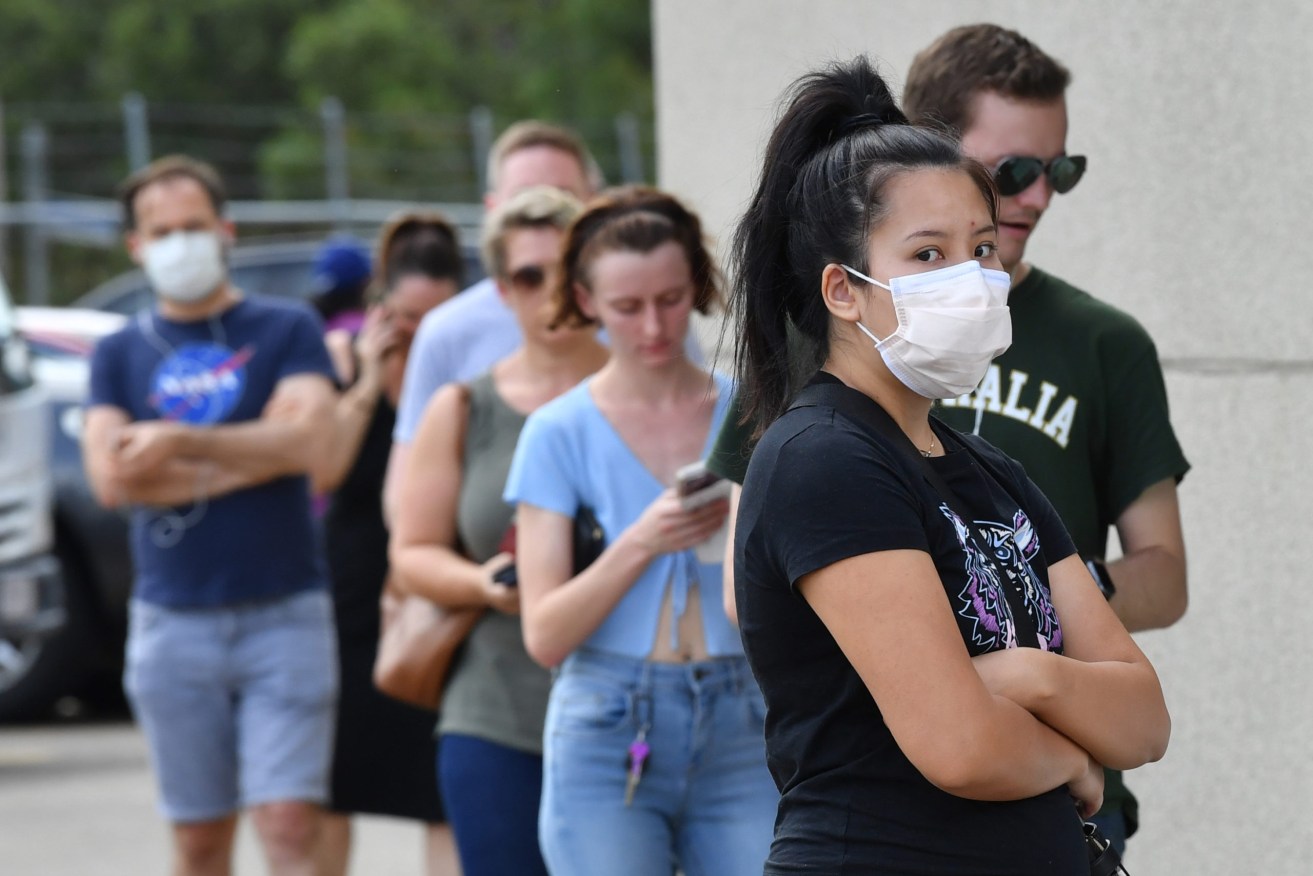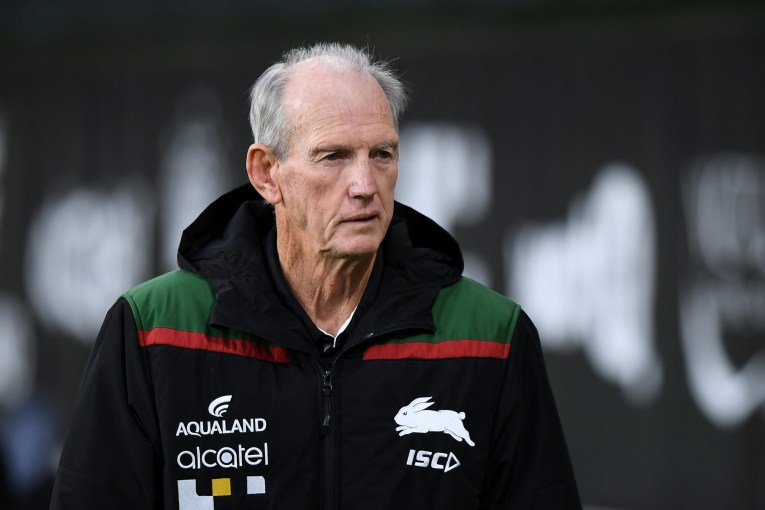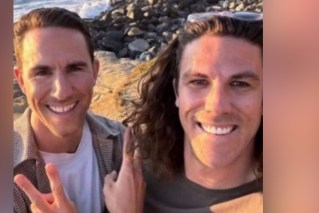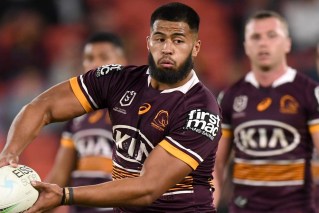The real reason why show must go on for council polls
Polling booths will be open across the state tomorrow despite calls for people to stay at home, with the State Government needing new councils in place to roll out disaster management plans to deal with the pandemic.

The council elections and by-elections were held under extraordinary conditions. (Photo: Darren England/AAP PHOTOS)
There are lingering concerns over the health risks of compelling people to turn out to vote in local council elections and two state by-elections; one for Bundamba, around Ipswich, and the other Currumbin, on the Gold Coast, where a local outbreak of the coronavirus and travel restrictions are causing havoc.
Almost half of all eligible voters have already voted, however there could still be hundreds of thousands of people attending polling booths tomorrow. Pre-polling today has seen people queuing in an effort to avoid longer, larger gatherings tomorrow.
Premier Annastacia Palaszczuk and Chief Health Officer Jeannette Young have been adamant the elections should go ahead, even if voters need to practice social distancing and bring their own pencil. Candidates and volunteers have been banned from handing out how-to-vote cards and scrutineers will be restricting during the count.
Voting is compulsory, however there may be a low turnout, and the Electoral Commission of Queensland is still discussing with government whether those who fail to vote should be fined.
The government needs councils in place, partly because under the disaster declared on March 22, mayors have a crucial role in the response to the pandemic.
Local Government Association of Queensland chief executive Greg Hallam said he was confident in the decisions made by Palaszczuk and Young, who were acting on the best available advice.
“It’s really important that we have mayors and councils in place and out of caretaker mode,” Hallam said, noting that councils manage $150b in infrastructure, including basic services, and employ 40,000 people.
“Had we extended this for three to six months we would have had chaos.”
Griffith University political observer Dr Paul Williams has predicted the timing of the elections, in the midst of a pandemic and economic crisis, might benefit the incumbents.
Labor has been rallying people to vote – in Brisbane, candidate Patrick Condren is trying to unseat the Liberal Lord Mayor Adrian Schrinner – and on Thursday took to social media to promote telephone voting as an option. Within hours, however, the ECQ had sought to clarify the issue, saying telephone voting was “a limited-service specifically for our most vulnerable citizens”.
Restrictions on aged care homes have prevented electoral visits, however telephone voting and postal votes have been offered to some.
While the right to vote is entrenched in Queensland’s Human Rights Act, there are other factors around the proper management of elections, particularly in 2020.
“On balance, there are compelling reasons that would justify proceeding with the elections, notwithstanding the impediments that are placed on people in exercising their right to vote,” said Human Rights Commissioner Scott McDougall.
Whatever the result in the state by-elections, Parliament is on hiatus until April 28 at the earliest and the Palaszczuk government will hold power. It remains to be seen what will happen with the state election scheduled for October 31.












